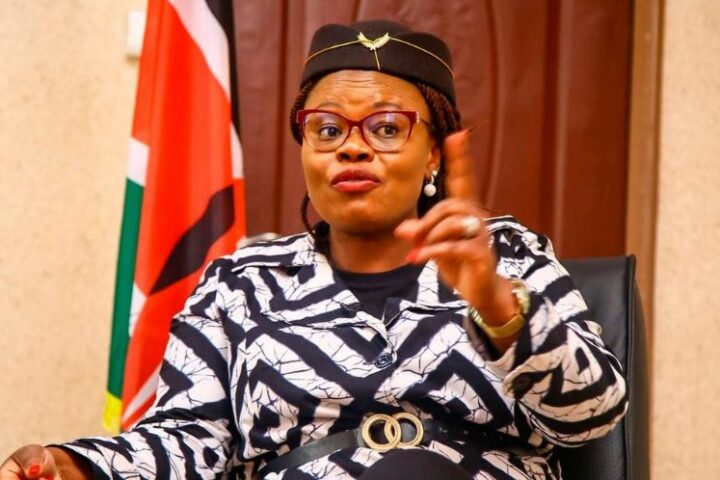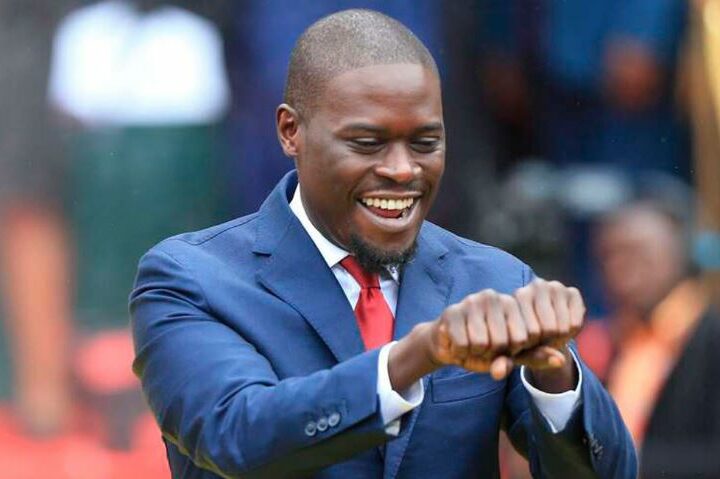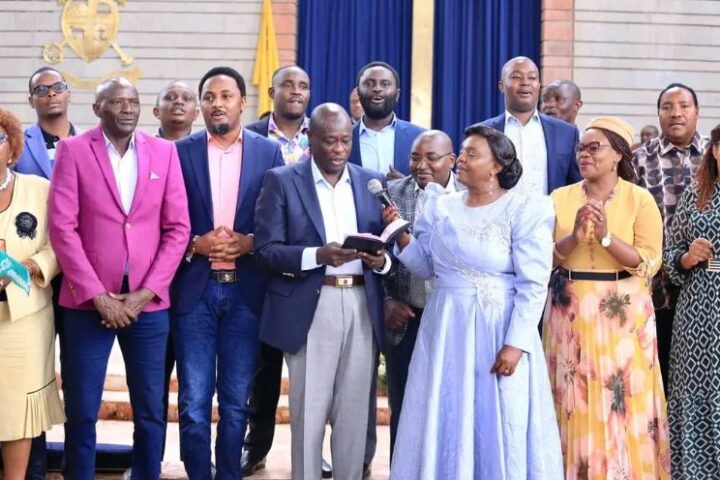 Carol Radull is arguably Kenya’s number one Arsenal fan and one of few female football journalists cutting a niche for herself in a male-dominated industry.
Carol Radull is arguably Kenya’s number one Arsenal fan and one of few female football journalists cutting a niche for herself in a male-dominated industry.
She spoke to The Nairobian about her journey and struggles to become one of the most bankable sports presenters in Africa.
You are very versatile when it comes to sports. Is it an inborn thing?
I grew up in Botswana where my father was a mining engineer. The company he worked for provided us with all kinds of sports facilities. Our parents were very active in sports and so I guess the apple did not fall far from the tree. I participated in all sports and am familiar with the rules, which makes it easy for me to watch and talk about them in my show.
You have worked with different media houses. How has it been?
After finishing campus, I joined theatre. I would do voice-overs for KBC’s theatre programmes and later, I rose to be an anchor. I was trained by Raphael Tuju alongside the late Anne Ofula and Yusuf Ali (Citizen TV). I then got the opportunity to move to the Mohammed Amin Foundation for ‘Africa Journal.’
How was it like working with one of the world’s greatest photojournalists?
Mohammed was very passionate about Africans telling African stories. He gave me all the confidence and support I needed. Even though it is a mzungu who ran the show in the background, the story was still told by Africans, me, to be precise! By the time I moved to Reuters, I had all the experience. This is the same drive I had even at the BBC, well before I lost my job.
What happened at BBC?
Let’s just say that we parted ways amicably. It hit me that I had been taking all the opportunities that God gave me for granted. I think I always imagined that it was my right to have a great job.
Where exactly did you go wrong?
I started earning good money when I was very young. Despite earning a six-figure salary, I was not saving. I would walk into a bar with almost 20 friends and shout ‘peweni!’ My account was always at zero every end of the month.
You did not have any money in your account?
I had a savings account which had Sh4,000 by the time I lost my job. I was a spendthrift. If you ask me what I did with the money, I wouldn’t know because I did not save.
How did you manage to pay rent and other bills?
My sister paid my rent for six months. Luckily, Nick Hughes (Vivid Features director) called me for a job in Rwanda where he was shooting a story about the Rwandan Genocide. Nick paid my rent for another six months. I later got a job at Citizen TV for a short time. It was shut down by the government as soon as I started getting comfortable. I was jobless after three months. I felt like I was running out of luck.
This was the second time you were losing a job. How did you manage to survive?
I literally became a hustler. I would organise shoots for Swedish and Nowergian news agencies. I would make a little money to survive till the next gig. This gave me the opportunity to reflect and think about my life. It also taught me to be more responsible.
How did you bounce back?
I had just come back from Kisumu in 2000 for a shoot when I got a message on my voicemail. It was from John Wilkins. He was coming up with a new radio station and was recruiting news readers. I went for an interview on a Friday and reported to work the following Monday.
From a news presenter to a sports show on Kiss 100…
Initially, it was supposed to be hosted by Maina Kageni and Jimmy Gathu. However, Maina got busy on the first day and Jimmy had to do it alone. Unfortunately, he was not quite familiar with football and so, Caroline Mutoko recommended that I sit in for Maina. The show has played a part in transforming the Kenyan Premier League.
How did it transform football?
One day, I got curious about Kenyan Premier League and decided to go to the stadium with a couple of friends. Among those friends was my husband who happens to know more about local football than I do. Soon, it became a cool thing to attend football matches.
What have you learnt from all these experiences?
To be grateful for everything I have. I don’t take anything for granted.






